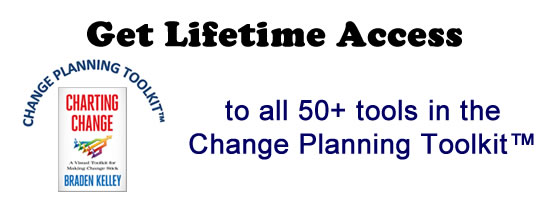Advice to a Medical Student Entrepreneur

Dear Susan,
Congratulations on your recent graduation. I’m sure you are thrilled to start medical school in August and are looking forward to taking a break this summer.
The usual commencement speech I’d give, had I been invited, goes something like this:
Given your interest in building the company you started in college,however, you might want to rethink that vacation in Europe. You probably can’t afford it.
You see, while things are gradually changing for budding medical student entrepreneurs like you, don’t expect that you will have neither the time nor support to pursue your entrepreneurial endeavors. Medical school is all consuming, so you’ll need to squeeze in any extra time on your own. What is more, it is extremely unlikely that your medical school will offer the knowledge, skills and attitudes you will need to be successful as a physician entrepreneur i.e creating user defined value through the deployment of innovation.
You will also need to think about paying off that debt. A 2017 survey conducted by AMA Insurance indicates that 35 percent of medical students expect to have loan debt in excess of $200,000, while 21 percent indicated they will have between $150,000 and $200,000 in debt. It is no surprise, then, that 43 percent of students indicated that paying off medical school debt was their most pressing financial concern. Other significant financial concerns among students surveyed included providing for elderly parents (25 percent) and funding college expenses for children (21 percent). Still, the significant debt load can play directly into those secondary concerns. If you marry another medical student in debt, that further compounds the challenge.
Do you really want to borrow more money to get an MBA, and, if you do, how will that debt burden affect your future entrepreneurial activities?
Perhaps you should consider taking a digital health internship in a top tier digital health ecosystem like Prime Health in Colorado.
Here is some advice:
- Do an internship with a startup this summer before you start medical school in the Fall and, if possible, between your first and second year of medical school. Here are some examples from medical student entrepreneurs.
- Network as much as you can and find a mentor. A good way to do this is to join The Society of Physician Entrepreneurs at attend local chapter meetings.
- Be sure to use social media aggressively to find like minded students around the world.
- Take advantage of free MOOCs being offered in bioentrepreneurship, medical innovation and digital health.
- Identify others in your class who are interested in biomedical and health innovation and entrepreneurship and start a special interest group or student club and invite members of your local cluster or ecosystem to speak at lunch and learn sessions.
- Focus on getting education, access to resources, networks and mentors and experiential learning. Find out whether your school offers bioentrepreneurship workshops, courses or degree programs and rethink getting an MBA. You should also look into iCorps training.
- Keep your head down and focus on medicine. Don’t tell faculty or other students about your entrepreneurial endeavors lest they think you are not taking medicine seriously enough.
- Factor in your entrepreneurial career objectives when it comes time to choose a specialtyor employed or independent practice arrangement.
- Be sure to complete a residency and several years of practice to understand the problems beguiling sick care and possible opportunities to fix them.
- At this stage of the game, stay fixed on being a problem seeker, not a problem solver. Start by developing your entrepreneurial mindset and practicing entrepreneurial habits. Here are 10 crucial steps to becoming a “pre-entrepreneur”.
- Start to learn about the business of medicine particularly innovation, marketing, the use of health information technologies and business models.
- If you are not internally motivated to do this for some time, then quit now and save yourself a lot of heartburn.
You should start taking care of your financial health just like you would take care of your personal health day one in medical school. Creating and following a risk management plan means educating yourself and getting the right professional help as soon as possible. The likelihood is that by the end of school , you will be burned out and somewhat cynical and unaddressed financial burdens will only add to the weight on your shoulders.
You should also consider taking a leave of absence, or a mid-gap year, to pursue your entrepreneurial dreams like these medical students.
Remember, you were not admitted to medical school because of your creativity. You were admitted because of your ability to memorize things, take standardized tests and conform. Simply put, you might not have what it takes to be a physician entrepreneur and , if you are, you will most likely fail.
Again, congratulations on your achievements. Hopefully, when you complete your residency and possibly fellowship training 10 years from now, the environment will be less hostile and more supportive of your initiatives. Please send my best regards to your parents, who, I’m sure are very proud of you.
Wait! Before you go…
Choose how you want the latest innovation content delivered to you:
- Daily — RSS Feed — Email — Twitter — Facebook — Linkedin Today
- Weekly — Email Newsletter — Free Magazine — Linkedin Group
 Arlen Meyers, MD, MBA is the President and CEO of the Society of Physician Entrepreneurs at www.sopenet.org
Arlen Meyers, MD, MBA is the President and CEO of the Society of Physician Entrepreneurs at www.sopenet.org
NEVER MISS ANOTHER NEWSLETTER!
LATEST BLOGS
How To Stay Connected to Your Co-Workers as a Digital Nomad
The digital nomad lifestyle has grown dramatically in recent years. The number of digital nomads has increased by 42%…
Read MoreCarbon neutrality: what is it, how to achieve it and why you should care
When sustainability is on the agenda, you’re likely to hear many terms mentioned that you may or may not be…
Read More


